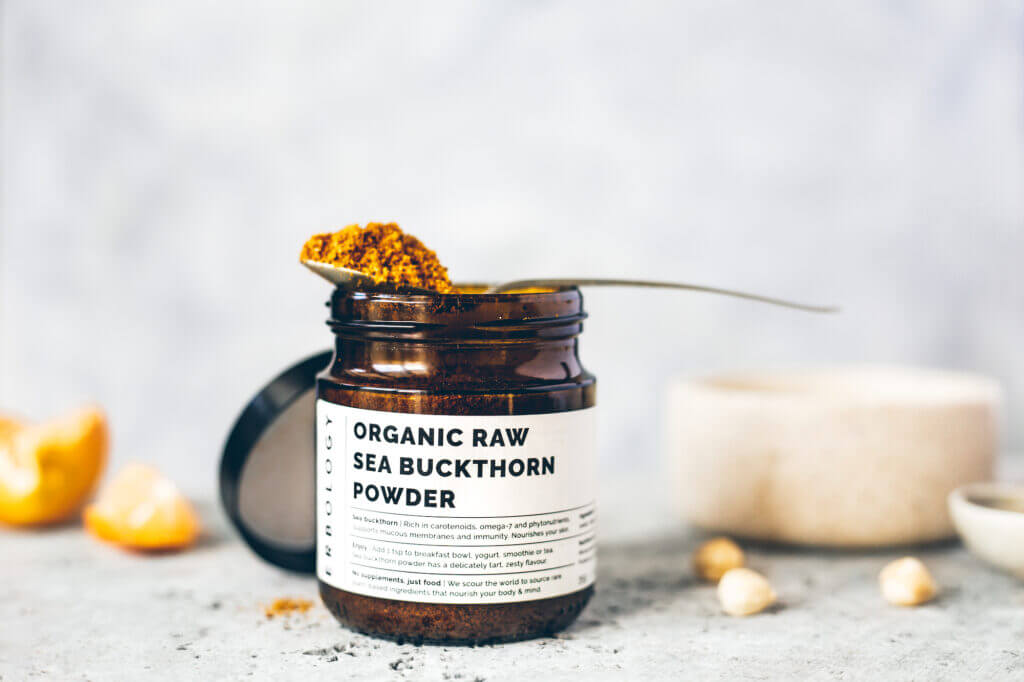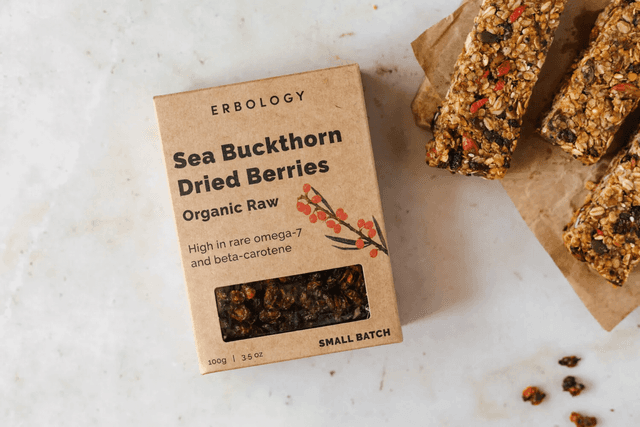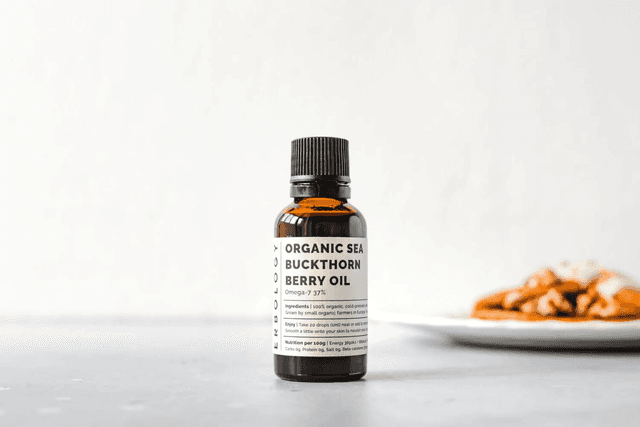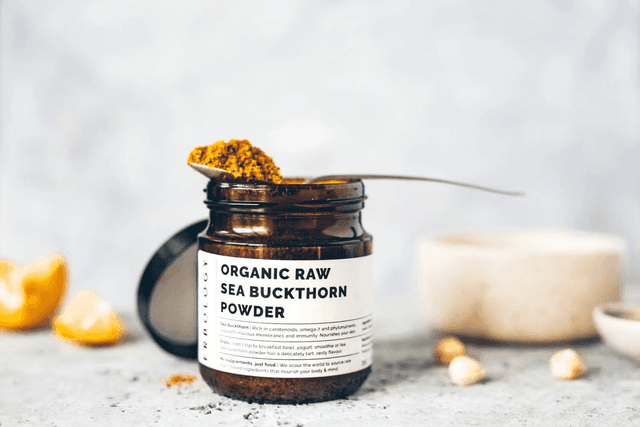09 Mar 2021
Sea buckthorn: menopause natural remedy?
A quick recap on sea buckthorn
Sea buckthorn is a small orange-yellow berry which grows in many regions around the world, including the UK. It has a tart, energising flavour, similar to gooseberry but with hints of tropical pineapple.
It has attracted lots of attention in recent years thanks to its impressive nutritional profile. For example, it is rich in vitamin C; per 100g, it contains significantly more vitamin C than oranges.
It also contains other healthy nutrients such as beta-carotene. This pigment gives sea buckthorn berries their colour, but our bodies can also convert it into vitamin A. This vitamin is vital for our eye and skin health, as well as supporting our immunity.
Sea buckthorn is also a source of omega-7. This unsaturated fatty acid is quite tough to find in the plant world, and in fact sea buckthorn is the best known plant-based source of it.
Its role in the body is still being investigated, but it’s thought to help facilitate communication between different types of tissue. Scientists have also linked with with skin, eye and mucous membrane health.
Most of the omega-7 supplements on the market are derived from sea buckthorn.
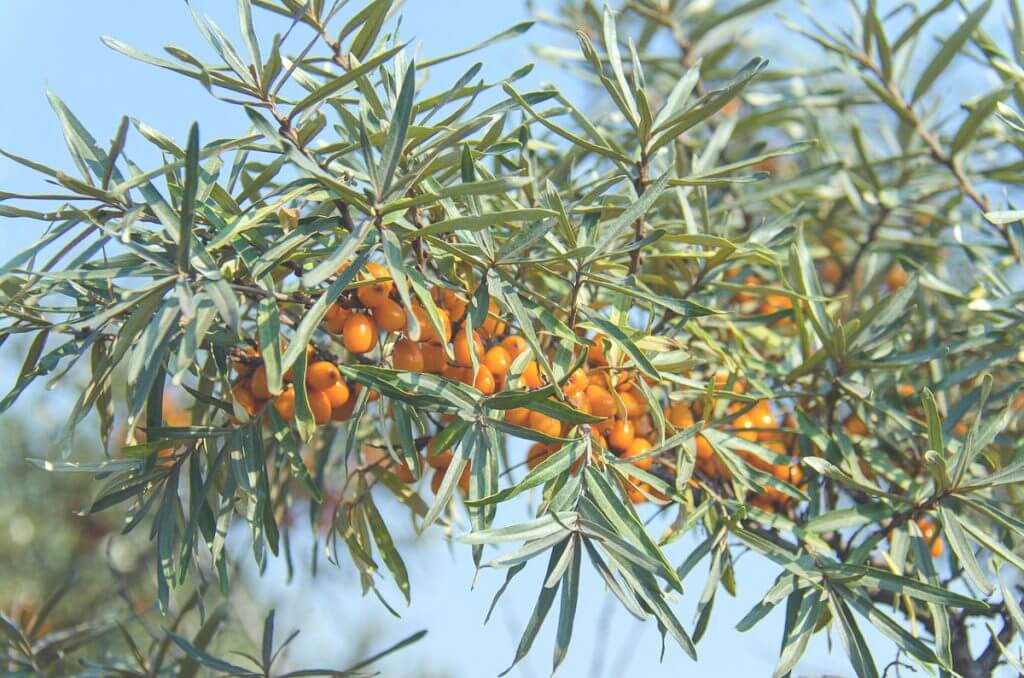
Related reading
Sea buckthorn for menopause
So, why has sea buckthorn been linked with helping with menopause?
There are two main reasons for this.
Firstly, a number of scientific studies have found that taking sea buckthorn helped women going through menopause with some of their symptoms and discomfort.
Secondly, many doctors prescribe estrogen to help manage symptoms of menopause. During menopause, your estrogen levels tend to drop off quite dramatically. Low estrogen can cause unpleasant symptoms like headaches, weight gain and ‘brain fog’.
Sea buckthorn contains phytoestrogens, which are plant-based compounds which work in a similar way to human estrogen. For this reason many people have become interested in whether sea buckthorn phytoestrogens could support or even replace treatment with synthetic estrogen.
Firstly, let’s take a look at the studies we already have about sea buckthorn as a menopause natural remedy.
Sea buckthorn may help with vaginal dryness
Vaginal dryness is a common symptom of menopause. It occurs because when your body produces less estrogen, the walls of your vagina become thinner (sometimes called vaginal atrophy).
Glands in your cervix also produce a natural lubricant which helps to keep your vagina clean and healthy. During menopause, these glands often produce less lubricant, creating a feeling of dryness. This can lead to itching, burning and pain during sex. It is very common in menopausal women (around 45% of women experience it).(3)
So, how can sea buckthorn help?
One scientific study looked at the effects of sea buckthorn oil on a group of 116 post-menopausal women experiencing vaginal dryness.
The researchers found that the vaginal epithelial (skin) health of the women in the sea buckthorn group was significantly improved versus the placebo group.(1)
Another promising study found that three out of five patients showed improvement of chronic vaginal inflammatory atrophy. However, more clinical trials would be needed to confirm the result of a study with such a small number of participants.(2)
Despite these promising results, t’s important to note that a meta-analysis of studies into menopausal remedies did not find a significant improvement. The researchers did acknowledge, though, that the study period may have been too short to find completely accurate results.(3)
